Focus on: The Harbour Club
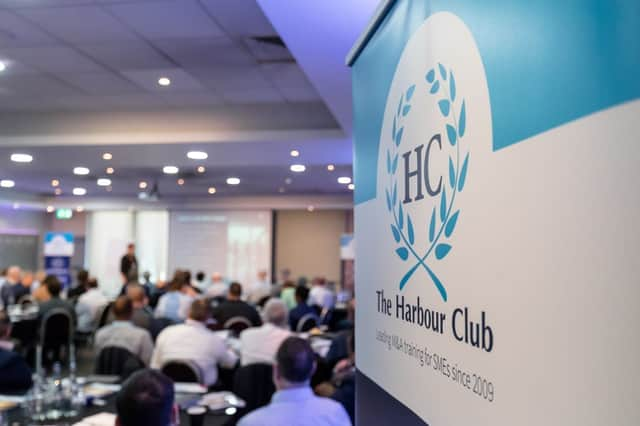

This article contains affiliate links. We may earn a small commission on items purchased through this article, but that does not affect our editorial judgement.
The Harbour Club, an exclusive ‘bootcamp’ for serious entrepreneurs, was launched a decade ago this month. To celebrate its 10th birthday, Lucy Bryson shines a light on one of the world’s most successful ‘how-to’ courses.
Since the early 1990s, entrepreneurs have been glorified by the media and touted by politicians as the saviours of our day. Nothing fires the imagination – or wins more hearts – than an inspirational rags-to-riches story. The meteoric accomplishments of a select few motivate the rest of us to dream bigger and to achieve our own financial destinies.
But behind the headlines and vote-winning speeches lies the gritty, unglamorous truth: most ventures fail within the first five years and those that do survive into adolescence are saved not by savvy innovation but through dogged, obsessive determination. In the UK, home to 5.7million small and medium-sized enterprises (SMEs), owners work 13 hours-a-week longer than the national average. Less than half have holidays and almost a third suffer health issues due to the stress and pressure of running their firms. What’s worse, some 40 per cent of SME owners don’t have cash at their disposal because it’s tied up in their businesses, and fewer still have any practical way of making an exit. The notion that ‘If you own it, you live it’ could not be closer to the truth.
The Harbour Club is turning that paradigm on its head. Here, entrepreneurs are taught how to “hack” the system by acquiring other businesses for no cash upfront, whipping them into shape, and selling them on. It is, according to its founder Jeremy Harbour, a smarter way to make money. “It’s one of the greatest ironies – and injustices – of becoming self-employed. Most entrepreneurs start a business to live the dream or to escape the rat race but becoming intrinsically tied to what they’ve made. Their ‘baby’ takes up all their time, money and energy and, like children, rarely returns it - at any time.”
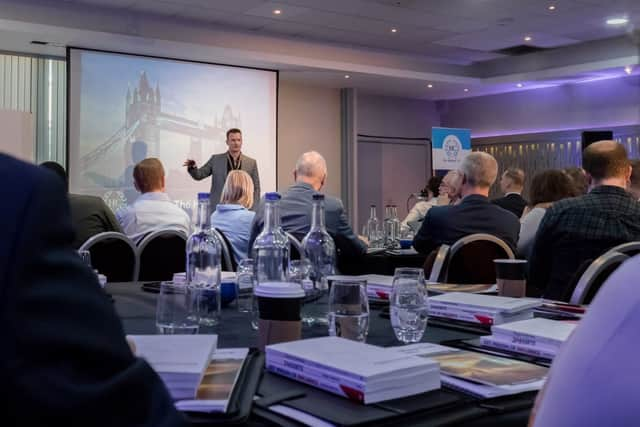

The course (which is almost always sold out well in advance) is run over three days in London, UK; Singapore; and Miami, USA, a handful of times each year. It’s best described as a business bootcamp in that it teaches delegates how to think like detached shareholders rather than emotional (and quite often precious) business owners. The focus is on mergers and acquisitions (M&A) and, in particular, ‘distressed’ or ‘motivated’ acquisitions where the owners are keen to sell and a buyer can use their proven strategies to ‘fix up’ the business and sell at the right moment for a tidy profit. Those who attend become lifetime members of the exclusive Harbour Club community which, amongst its benefits, offers direct access to Jeremy Harbour for free and unlimited deal advice.
Since it was created in 2009, The Harbour Club has been providing experiential training to entrepreneurs, prepping them for the real world of buying, fixing and selling SMEs, and there are now more than 500 members worldwide. Rather than dry theorising, Harbour tells attendees exactly what they should be doing as well as when and how they should be doing it. With the right strategies in place, entrepreneurs can free themselves from managing a business to building business empires — with little or no financial outlay. “It’s a myth that M&As require ready capital, middlemen, and significant legal legwork. With the right tactics and conversations, M&As can be done directly and without any legal legwork,” Harbour says.
Delegates freely admit that Harbour, a global leader in the field of small business M&A, pulls no punches and does not shy away from his own business failures. “I want others to learn from these mistakes, and not bump their heads in the same place,” he says. Harbour, like many successful entrepreneurs, learned the hard way. Having run small money-making schemes since his school days, he sank time and money into an amusement arcade venture at the age of 18. Despite his best efforts it “failed spectacularly”.
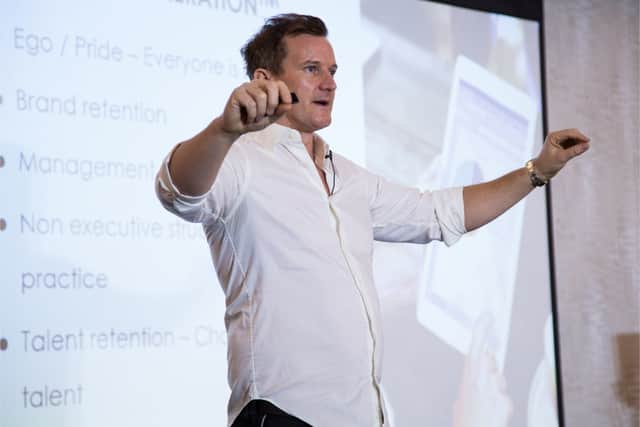

Harbour learnt by own his mistakes and went on to acquire more than 100 businesses internationally. (He is now the founder and CEO of the private equity firm, The Unity Group and was named Coutts Entrepreneur of the Year runner-up three times).
“If entrepreneurs add growth by acquisition to their existing organic growth strategy, they will quickly improve their business and create shareholder value,” Harbour, who was born in Britain and now lives in Singapore, says. “It is only by creating shareholder value that entrepreneurs can really create the freedoms they originally aimed for.”
The Harbour Club seminar has been described as “gold dust” by past attendees, though they will often add in the same breath about how it can also seem a little overwhelming at first, simply because there’s so much information condensed into just three days.
The seminars are held at hotels close to major airports, such as Miami International or Heathrow, and run between 9am and 6pm per day, followed by dinner and networking in the bar until 10pm. The second day is notable for featuring a breakout session, where one topic in particular is covered in more detail.
The seminar is delivered by Jeremy himself and covers topics including how to find new business opportunities and seal that all-important deal; the tactics to buy a company with no money upfront; insolvency law; and planning the perfect exit strategy for six to seven-figure profits.


Paul Seabridge, pictured, attended The Harbour Club in October 2017. Within four months Paul, an entrepreneur, private investor and corporate advisor, had closed four new deals using the strategies he used on the course. The first of those deals was for the small letting agency that he already owned. He’d wanted to sell the company for some time but had hesitated because the size of the business meant he would not secure a good price through a traditional trade sale. Using the know-how learned during the Harbour Club seminar Paul employed an offshore loan model to sell it to one of his key employees for a much better return.
Paul also acquired a concrete manufacturing company that had a £1.2million turnover but significant debts running past £400,000. By utilising the Harbour Club’s tactics on restructuring, Paul expects the business to be making a £250,000 profit within 12 months - and be free of its debt burden – at which point he plans to sell it.
The third deal was for an estate agency and lettings business that was far from distressed but where the owner was still looking to exit the market in order to concentrate on other more profitable businesses within his portfolio. By applying Jeremy’s advice into how to conduct an M&A with no cash up-front, Paul acquired a 49 per cent stake for a nominal sum of £1. He now plans to scale up the company and exit, both to his and the original owner’s benefit.
The final deal was for a kitchen and bathroom retailer that despite a £4million turnover was a distressed concern with significant debt. Paul acquired a 20 per cent share, and effective ownership, for £1 and teamed up with a fellow Harbour Club member who had experience in that sector to restructure the company without insolvency.
Paul went on to become a Harbour Club delegate, attending a ‘Super Conference’ in London in May 2018, where he took to the stage to share his experiences and details of the acquisitions he’d made with other guests.
Guari Talathi-Lamb is co-managing partner at Iolas Capital, alongside her husband. After attending the Harbour Club, mum-of-one Guari was able to secure her first deal while also holding down a full-time job. Following Harbour’s advice to approach distressed or motivated businesses directly by letter or phone, she connected with the owner of a 156-year-old company with a £3.2million turn-over and 22 members of staff. The business, which specialised in outfitting cinemas, theatres and business parks, was distressed and this had got to the point where it was affecting the owner’s wellbeing. The owner initially was seeking to sell for around £1million but after a period of negotiations, and utilising Jeremy’s tactics, Gauri was ultimately able to buy the company for £1. The company has a firm existing client-base and sizeable orders of up to £2million so, after a period of restructuring and consolidation to bring the company back to an even keel, she plans to exit at a significant profit and potentially leave employment to strike out on her own as an entrepreneur.
“You have given an amazing toolkit. I’ve not only used it for what I’m doing right now with the company I’ve bought, but also in my personal life. You can use it for your workplace and instead of going there, getting a salary for doing a day job, I’m now looking at it as a stakeholder. It’s shifted the way I think,” she said.
Like many owners of SMEs, Liam Bowmer found that the running of his IT company was limiting his freedom to pursue new business interests. However, within six months of attending the Harbour Club he successfully closed a deal that would enable him to break out of that all-too-common trap, and make a tidy profit in the process. Using Jeremy’s guidance, Liam was able to agree a merger with another IT company, a process that began simply by him knocking on the door of the company and striking up a conversation. The deal was done within one week with no fuss, as he explains. “The pack I got from the Harbour Club was just gold dust. Rather than trying to go through lawyers and building up the cost and complexity, which could have even put the deal in jeopardy, the fact that there was a template there that you can run through, and understand the benefits, lubricated the whole process of getting the deal done.”
Liam took a stake in the acquiring company and, as he says, “Now that this deal’s gone through I don’t have to deal with any staff anymore and customers are dealt with by account managers. If you’re running your own business then you are really strapped for time, whereas if you can put in the hours to try and make these connections and make it work then it starts a snowball effect. Now I have much more time to concentrate on just doing deals.”
As an added bonus, and again by calling on Jeremy’s training, Liam also negotiated a second deal with the IT company by spinning off the remaining assets of his firm, which were largely infrastructure-based, and leasing them back to the business on a fixed contract. “Now I’ve another little business which I put no money into and which has a contract with a big IT company for five years,” he adds.
“The key thing to take away from the Harbour Club, that helped me most, is just the principle. I’ve stopped running a business and now go in with the point of view of a shareholder.”
For more information about The Harbour Club and its courses, visit www.harbourclubevents.com.
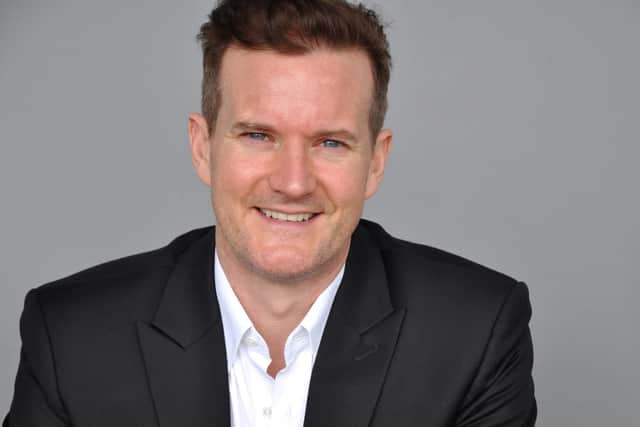

Focus on: Jeremy Harbour, founder of The Harbour Club
Few people know the world of mergers and acquisitions quite as well as Jeremy Harbour. The British-born, Singapore-based financial high flier has been honing his SME business skills since his teens, and today he is a leading figure in the world of buying and selling small businesses.
Not only is Harbour a mover and shaker within the industry, he’s actively shaping it. His patented Agglomeration™ model of collaborative acquisitions has changed the way many people do business, and he is helping to create a new wave of successful entrepreneurs through his Harbour Club events - ‘business bootcamps’ that equip attendees with all the strategies and business acumen they need to make a success of their own ventures in buying, ‘fixing’ and selling businesses.
CEO and founder of the Unity Group of Companies, a private equity firm specialising in helping entrepreneurs grow their businesses, Harbour is a self-made businessman who has completed over 100 M&A deals and advised on over 200 more.
He regularly appears as a keynote speaker at business conventions across the globe, has been invited to Buckingham Palace and has advised British Parliament on issues relating to entrepreneurship and investments.
It’s fair to say that Harbour has business acumen in his blood - at the age of 15 he was already involved in a part time business at a local market, and left school early to pursue a dream of running his own business - the first, an amusement arcade, ‘failed spectacularly’ by Harbour’s own admission.
But far from being disheartened, he looked for a smarter way to do business, and soon moved into the world of acquisitions, realising that he could make more money - and spend less time mired in daily running of a business - by buying and selling than he could by running his own company.
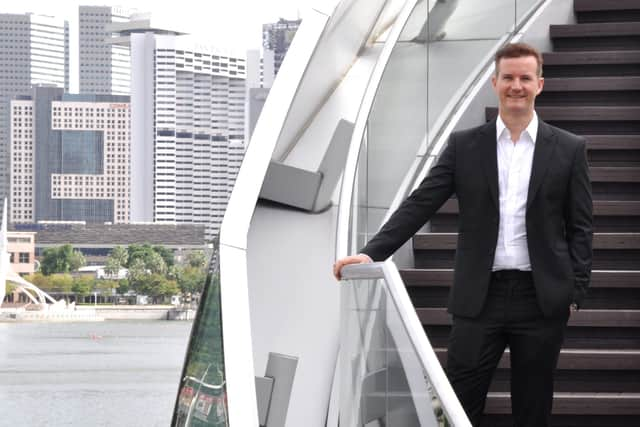

Having carved a highly successful niche in the field of buying, fixing and selling ‘distressed’ SMEs, Jeremy Harbour founded the Harbour Club in 2009, as a way of passing on the tricks of the trade to budding entrepreneurs. Today there are some 500 members who attend experiential workshops, led by Harbour himself, in the UK, USA and Singapore.


In 2012, Harbour authored his how-to business guide, Go Do! It went on to rank highly on Amazon and receive widespread acclaim. The following year he began to think seriously about how to improve the ‘seriously unloved’ investment area of SME, and formed a business partnership with fellow entrepreneur, and author of Progressive Partnerships, Callum Laing. The pair coined the Agglomeration™ business model, which Harbour describes as: “a sort of co-operative IPO, a group of companies from the same industry joining forces and publicly list, then acquire more companies in the same space”. In 2016 Harbour and Laing presented the concept to the world with the publication of Agglomerate: From Idea to IPO in 12 Months. Again, the book was met with rave reviews and solid sales.
Harbour founded The Marketing Group (TMG), the world’s first global digital marketing network that is using the Agglomeration model, listed on Nasdaq First; and in 2018 Unity Group listed the MBH Corporation, again using the Agglomeration™ model, in Frankfurt.
Known for his charisma and communication skills as well as his business smarts, Harbour has appeared on The Money Channel, and has been featured in the Financial Times and Sunday Times, among other publications. He currently lives in Singapore with his wife and children.
For more information visit: jeremyharbour.com.
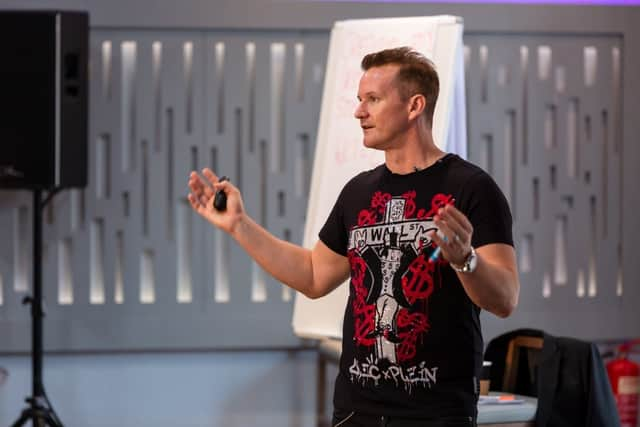

Q&A With Jeremy Harbour, founder of The Harbour Club
We sit down with the M&A expert, Jeremy Harbour, to find out more about his exclusive ‘business bootcamp’, The Harbour Club.
Q: How did you first come up with the idea for The Harbour Club? How has it evolved since it was launched in 2009?
A: I started out like most traditional entrepreneurs with a focus on start-ups, sales and staff. One day, in the 1990s, that changed when I acquired a telecoms company that was 13 years old, without using cash up front, which effectively grew my current business by a year’s worth of sales in a single afternoon. It was a total epiphany - all my closely-held beliefs about how to grow a business had just been directly contradicted. I had found a value hack: you don’t have to run the marathon you can just run the last 10 yards and still get a medal. I then went on to buy several more companies over that following year.
I later sold my first business and had another ‘eureka moment’ – that you make money not from running a business but by selling it. By about 2008 I was getting a reputation for being able to buy and sell companies - I had done around a dozen deals by then - and people were also aware I was often doing deals that didn’t require cash upfront or bank debt. People started to ask if I would like to do some consultancy or sit on their board as a non-executive director and help them acquire competitors in a similar way. I could not think of any good reason why I would do that – better to do it myself and make a six or seven figure return than do the same role for a far smaller salary.
Then I bought a seminar business which offered business and entrepreneur-based seminars. It had revenue of $3.5m but had got themselves into a cash flow pickle. I bought a majority stake for $1 and fixed the company. While I was there, I gave a speech at a three-day event they ran in London on business turnaround tactics and then watched the other speakers for the weekend. It was then I was struck with the solution: instead of working for people I could run a seminar to teach them all the tactics and then if they went on to do a deal, I could be proud of them. It was a fair exchange of money for information. In 2009 we did the first ever Harbour Club and since then it has grown and grown and now is a global network of entrepreneurs who support each other to do deals and create wealth. I am very active in the network and frequently chat with members on WhatsApp or Skype about deals they are working on.